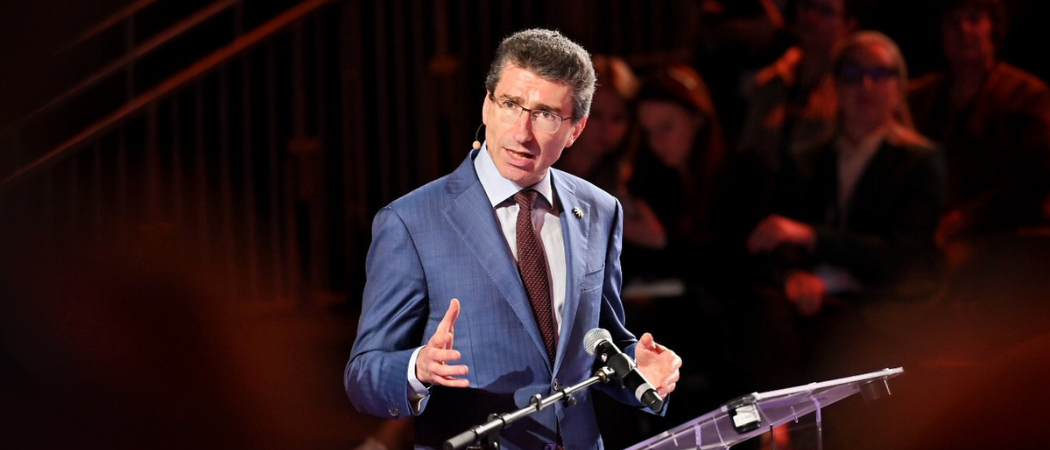The head of the EU's research directorate Marc Lemaître bemoans the size of the funding gap that opened up in the early – pre-inflationary - years of the framework programme

Marc Lemaître, head of the EU's research directorate, speaks at the closing session of the EU Research and Innovation days event. Photo credits: European Innovation Council team / European Union
The funding gaps in the framework programmes will need to be reversed if the EU is to boost its research and innovation performance, Marc Lemaître, head of the EU's research directorate has said. As things stand, the Horizon Europe budget is far short of what it would take to fund all the excellent research proposals it receives. "Over the years 2021 to 2022, we would have needed an additional €34 billion," Lemaître told the closing session of the EU Research and Innovation days event last week.
That gap means more than two out of three high quality proposals are getting turned down, Lemaître noted. As a result, despite its higher budget, Horizon Europe is repeating what happened in Horizon 2020, for which an additional €159 billion would have been needed across the 2014 – 2020 research programme.
For the next EU research programme, FP10, due to start in 2028, universities, research stakeholders and MEPs are asking for funding to double to €200 billion.
Maria Leptin, president of the European Research Council (ERC) also stressed the need for a higher budget for FP10. That would enable ERC to back more of the excellent fundamental science that is the wellspring of innovation, she said, noting 400 start-ups companies have emerged from ERC-funded research.
"We must not forget to invest in individuals making the discovery," said Leptin. "If we want to preserve Europe's leadership, in [fundamental] research, which is the basis for innovation and competitiveness, we need to invest more.”
She suggested one way to boost commercialisation of ERC-funded research could be for ERC to increase its cooperation with the European Innovational Council, to speed up the translation process from basic research to innovation.
Manuel Heitor, chair of the independent FP10 advisory group for FP10 and former science minister in Portugal, highlighted four main issues that must be confronted to improve Europe’s standing: more investment in research careers; strengthening competitiveness; addressing challenges, such as an aging society, food insecurity and carbon neutrality; and boosting citizen involvement.
“Within this number of new challenges, we have also need to guarantee the strengthening of European research and innovation ecosystems, through the so-called European Research Area, in order to be able to guarantee the necessary citizen engagement in R&D, but also the necessary careers for research, together with the necessary research infrastructures,” Heitor told delegates.





 A unique international forum for public research organisations and companies to connect their external engagement with strategic interests around their R&D system.
A unique international forum for public research organisations and companies to connect their external engagement with strategic interests around their R&D system.